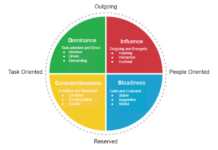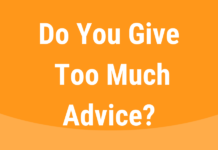
I know firsthand that there has never been a better time to be an author.
With traditional publishers I’ve hit all the bestseller lists and as an indie-author I make six figures a year from royalties and speaking engagements alone. Nothing builds your brand or attracts clients like having your own book.
But whether you are published traditionally or self-published, your book will not be successful without marketing to prospective readers. But where does the new author start? How should she spend her time online and doing what tasks?
Enter Fauzia Burke and her new book, Online Marketing for Busy Authors: A Step By Step Guide. Burke is the founder and president of FSB Associates, one of the first firms to specialize in digital branding and online publicity. FSB Associates has launched more than 2,000 book publicity campaigns thus far including books by Alan Alda, Larry J. Sabato, Brian Tracy, Charles Spencer, Joe Pantoliano, Marina Keegan, Kathy Freston, Deepak Chopra, Sue Grafton, and many others.
In her book, Burke takes authors through the process of identifying their unique personal brand, defining their audience, clarifying their aspirations and goals, and setting priorities. Once that foundation is established, she walks them through the process of developing a personalized, sustainable long-term online marketing plan. She offers advice on designing a successful website, building a mailing list of super fans, blogging, creating an engagement strategy for social media, and much more.
“Once you build your brand,” Burke writes, “no one can take it away from you.” Your digital brand is a conversation about your book that builds your community one relationship at a time. And when should you begin to market your book? “As soon as you have an idea for your book, that's when you should start marketing,” she says.
Here are eight tips Burke presents to help authors build a long-term marketing plan.
- Know your audience.
“Understanding your readers will help you devise the best digital marketing strategy for you. Online marketing is customized and personalized. It is essential for you to know your audience so you can find them and serve them best,” Burke explains. “You should know your readers' age group, gender, interests, which social media outlets they use and where they hang out online. The more you know your audience, the better your marketing will be.”
- Get a professional website.
“Your website is the only place online where you are in total control. No one else can change the rules like they can on other social media sites. Other social media platforms don't cancel out the need for a website because your website is where you call the shots,” Burke attests. If you are only on social media sites, you are always playing another person's game. You don't want your online presence to be in hands of someone else.
- Be selective.
Choose one or two social media platforms to start. Don't feel like you have to do the next shiny thing online or keep up with all social media platforms. Just start conversing with your audience by selecting a platform where you think you will find your readers. You can always adjust accordingly as you build your community.
- You can't be a bullhorn.
You have to go for engagement. You want people to talk on your page. “Don't get wooed by big numbers. You want a smaller community that's engaged as opposed to a large audience that's not engaged. Look at ways to engage the audience you do have,” Burke states. “Take very good care of the people who have given you their permission to talk with them — whether that's through a newsletter, blog, or on Facebook. Give them your best.”
- Put your reader first.
When you are creating content to connect with your community, always filter your content through a lens of your reader. Burke suggests asking yourself some questions: “How are you serving your reader? What value are you providing? What problem are you solving? Look at your engagement and see what people are sharing. Be natural but ask yourself: What is my audience telling me? When the content you create solves a problem your audience has, that's when you authentically build lasting relationships.”
- Think marathon and not sprint.
“It's okay if your marketing efforts don't immediately go viral. Be consistent in creating buzz about your brand and book by communicating daily on your social media sites,” Burke explains. “Think big picture because carving out your niche, creating a presence and building a following takes time.” Write down the goal for writing your book and read it for inspiration when things get hard.
- Follow the data.
Internet publicity is customized. “Everything you do online has a digital footprint and analytics. Take a step back and assess what you need to do by following the data. Measure what works and what doesn't and adapt accordingly,” Burke advises. Now you can spend your time on the things that are most effective for your brand and not what worked for someone else.
- Tap into your professional and personal networks.
Consider reaching out to people individually to create buzz and spread the word about your upcoming book. “You might think a blanket email will do the trick, but a one-on-one grassroots effort will be more effective in the long-term for connection, social shares, testimonials, and sales of your book,” Burke assures.
While it’s never been a better time to be an author, it doesn’t mean it’s easy to be a bestselling author. Using Burke’s advice, with some patience, will go a long way to making sure your book finds readers.





